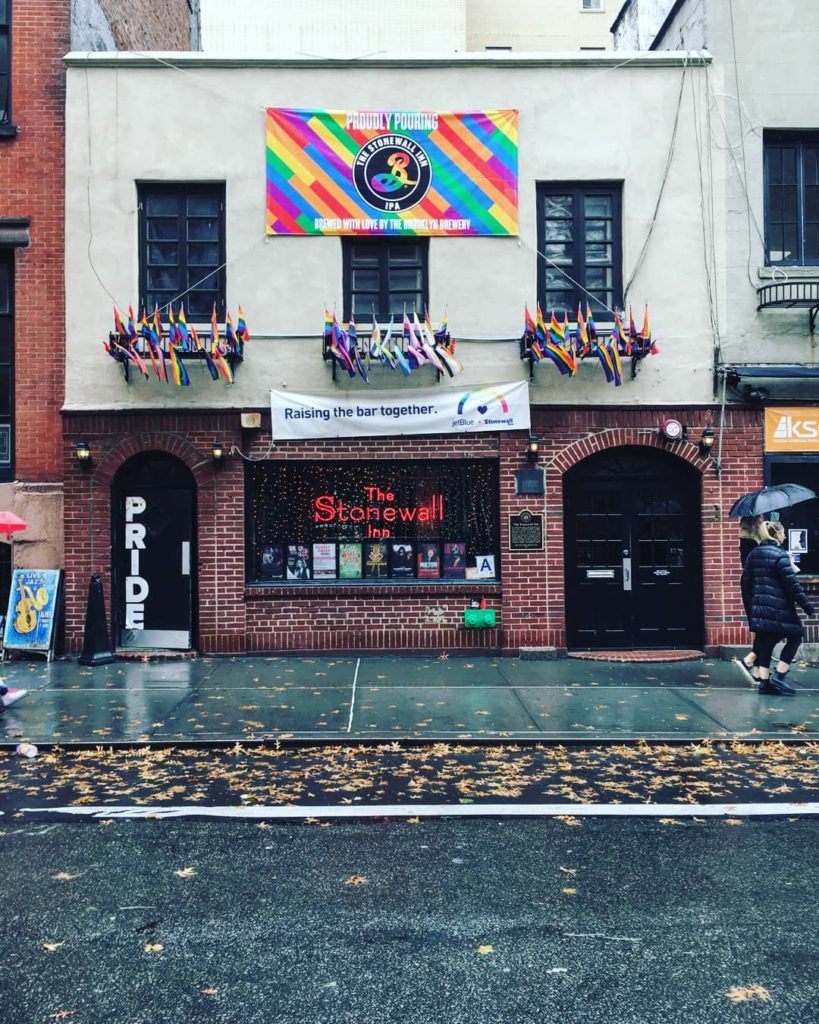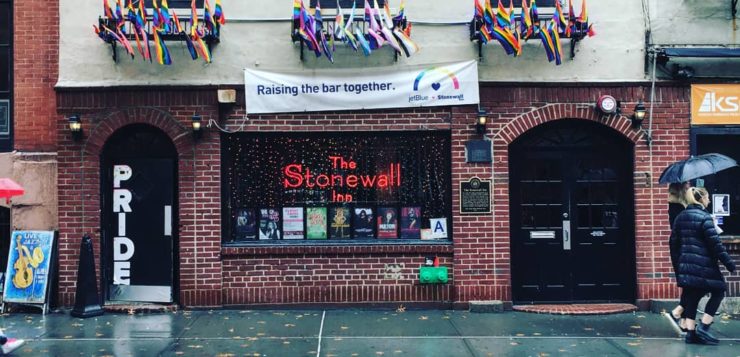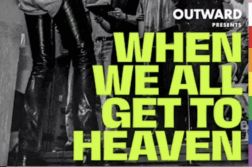
During my Thanksgiving break, I visited the Stonewall National Monument in for the first time. During my visit, I drank a Brooklyn IPA out of a branded rainbow cup with the bar’s logo, saw people purchasing t-shirts, and advertisements for events held at the historic bar, using the history of the place to increase business. These are all important and valid steps for the bar to take. It is, after all, a functioning business with historic status.
To me, Stonewall is a powerful site of memory and a commemoration of the riots which were a catalyst for the entire LGBT rights movement. As a bisexual woman and a historian, I have always found the commemoration of Stonewall as a national monument inspiring, personally and historically powerful, and, at the same time, problematic.
Stonewall’s entry into the mainstream exemplifies some of the adverse effects of the commercialization and commodification of queerness. And LGBT history has become a tool for corporations to sell Pride.
As the location and the event become mainstream, pride parades seem to fall prey not only to the well-documented whitewashing and maleness of LGBT histories, but also to the commercialization of queerness. Like so many queer stories, Stonewall fought to become a National Monument and a space deemed worthy of time and attention, but without intentional next steps, Stonewall might fall into the same trap of commercialization. From branded cups at the bar to merchandising and online products, Stonewall has certainly started to brand itself. This commercial effort matters deeply, but is this really the legacy of Stonewall? The riots were a radically inclusive act, showing the world that LGBT individuals would no longer be silenced, killed, excluded, discriminated against, and abused. Pride has always been a radical act. But in a world where being LGBT is becoming slowly more accepted, Pride has become an opportunity for economic gain.
As Meg Fair of the Pittsburgh Current wrote, “large corporations make Pride-themed ads, floats and merchandise solely for feel-good optics while giving little to no money to causes that actually support and benefit the LGBT community. Some of those same corporations with temporary rainbow logos spend the entirety of the year” engaging in exploitative practices for financial gain. What’s more, LGBT people who don’t fit the mainstream mold or stereotype often face the same discrimination.
Of course, rainbow flags and large amount of rainbow branded items that are sold by big companies and brands during Pride month bring awareness of LGBT issues. And to have any LGBT national monuments is a tremendous feat in our era of seemingly normalized bigotry. But to have a national monument that tells the same sanitized narrative of white, gay men and uses this narrative as a brand seems like “nominal activism divorced from real action,” as Alex Abad-Santos called it in Vox.
Does this really further the ongoing fight for LGBT rights around the world?
Because it seems to perpetuate the same historical exclusion and commercialization of our collective identity.

Megan Crutcher is an incoming PhD candidate in nautical archaeology at Texas A&M University. She is a practicing public historian and preservationist. She can be found at www.megancrutcher.com or tweeting @crutcher_megan.






Discussion2 Comments
Support the Stonewall Inn
https://www.gofundme.com/f/support-the-stonewall-inn?fbclid=IwAR0X7AB2Me0rbzuzefJ9UWXyLwlcU_-tpmRdenKwB07yf_KyAgsEb0rtTvY
Here’s my problem. Stonewall is the symbol for a combination of gay and lesbian movements that began twnty years previously in Los Angeles (The Mattachine Society) and San Francisco (The Daughters of Bilitis) and then spread East. I remember being at a conference in Melbourne, Australia in the late 2000s where a real attempt was being made to honor these movements, only to have that wiped out by Barack Obama’s 2013 Inaugration speech when he said, “Seneca Falls, Selma and Stonewall” as shorthand for the three major liberation movements in the Unoted States. Alliterative, yes. Historical? Not really.